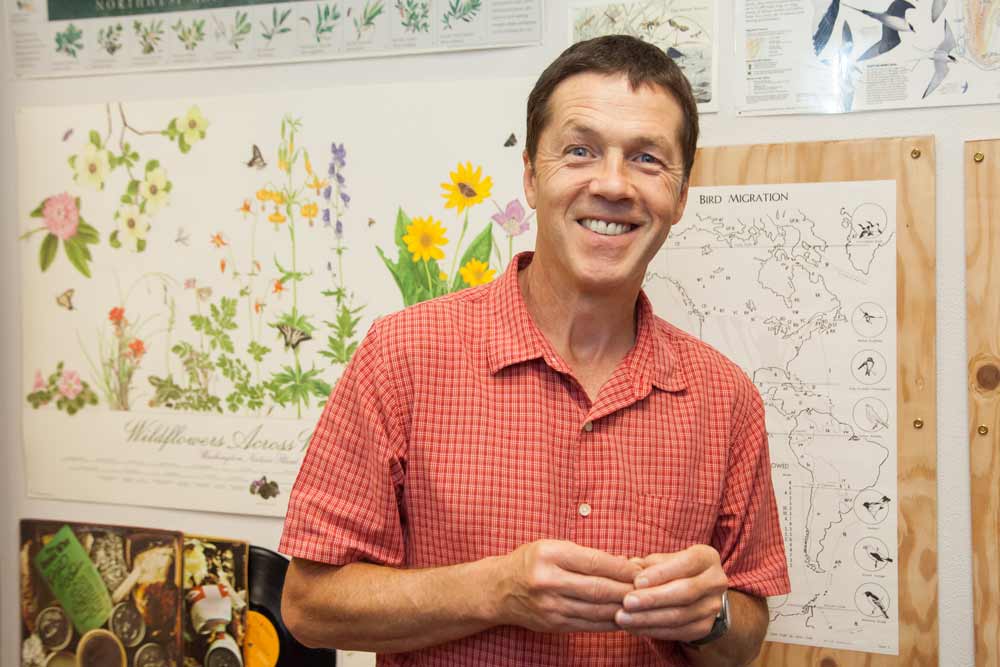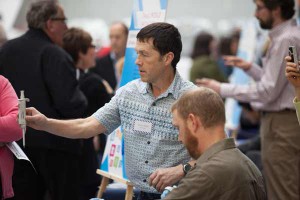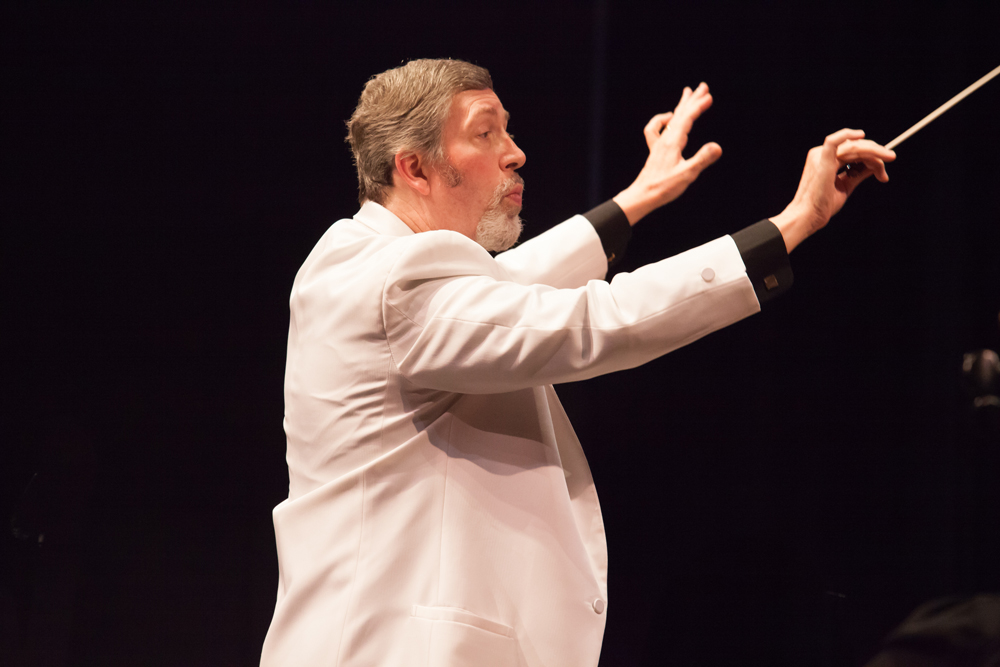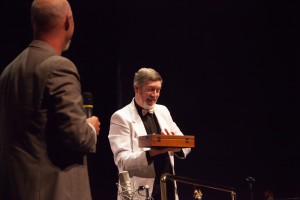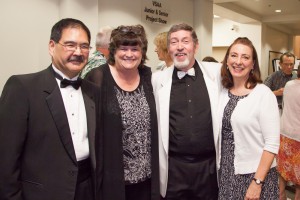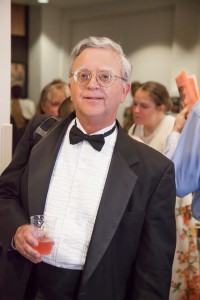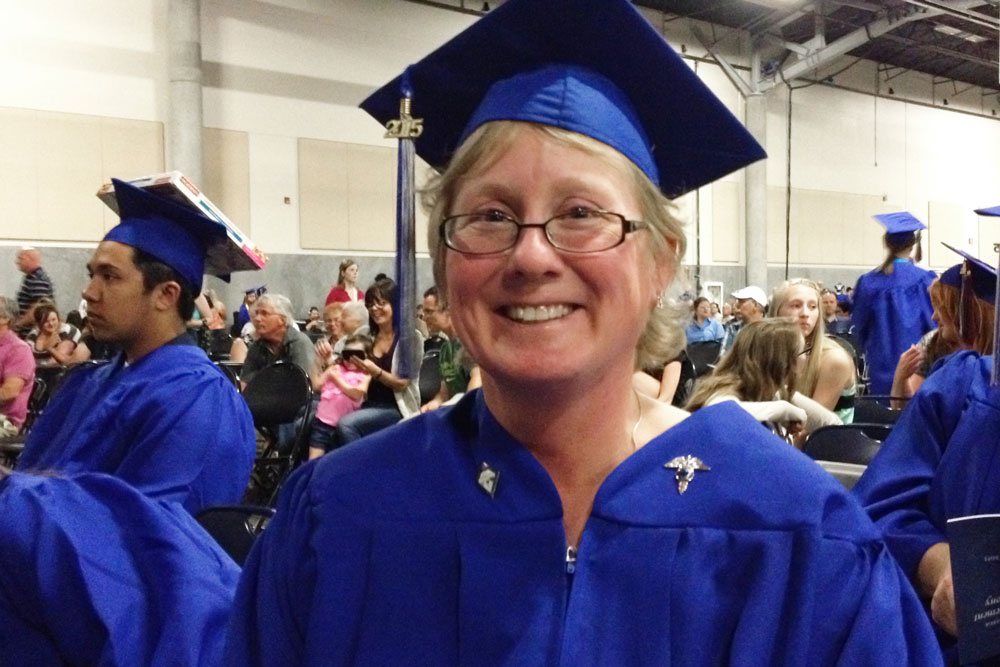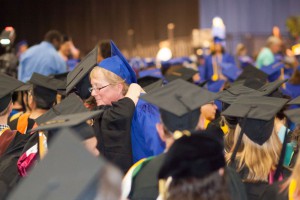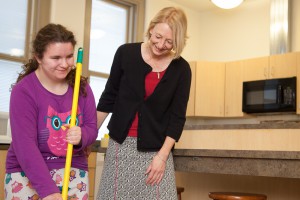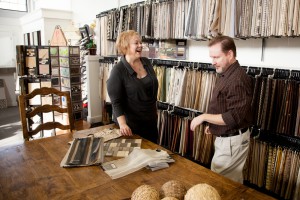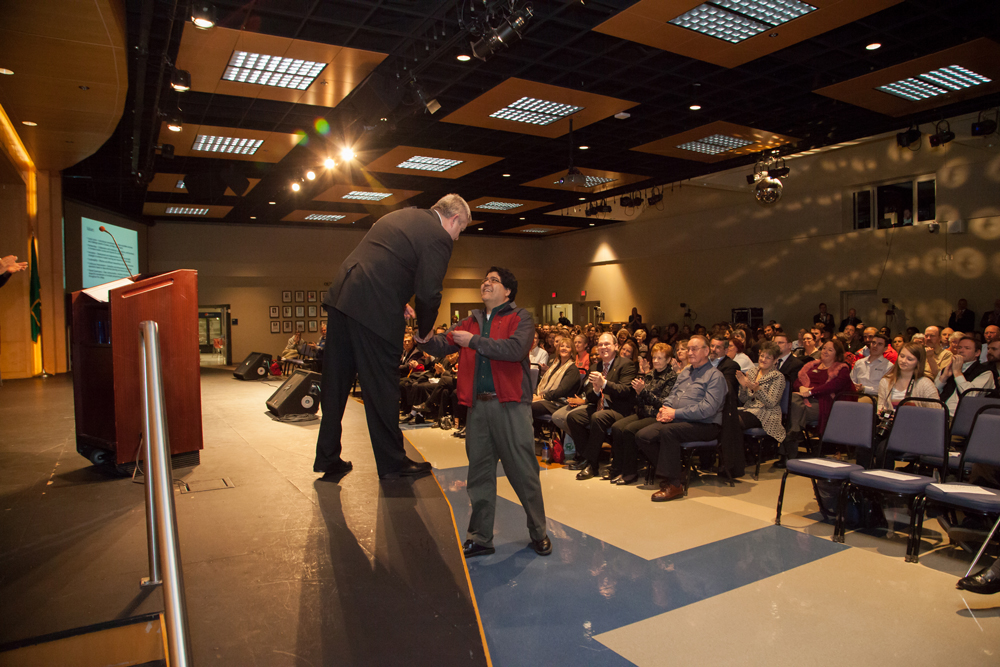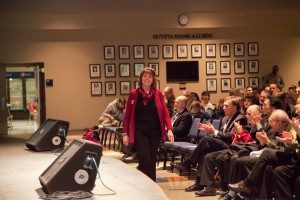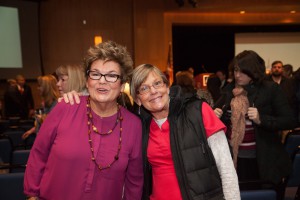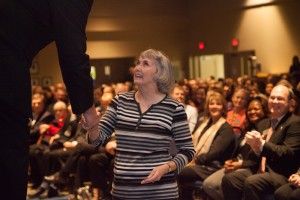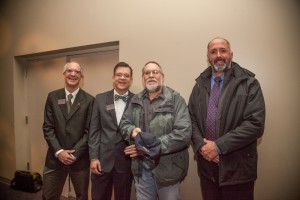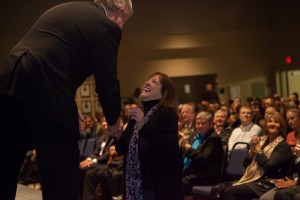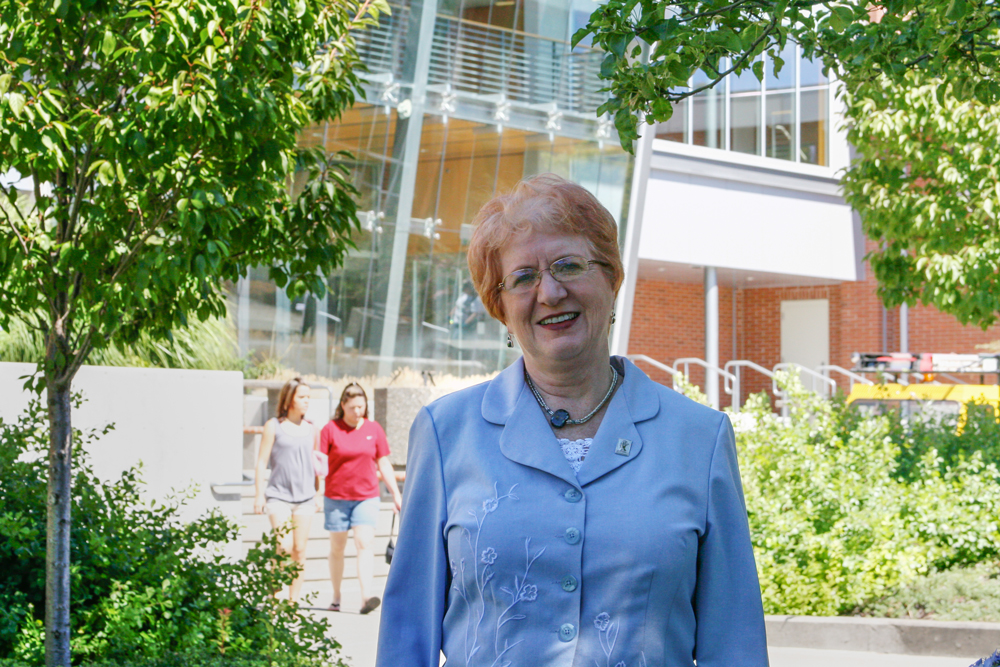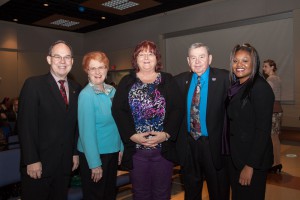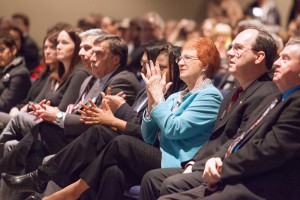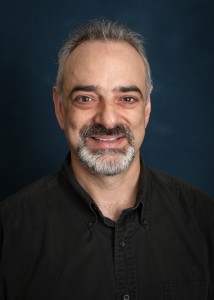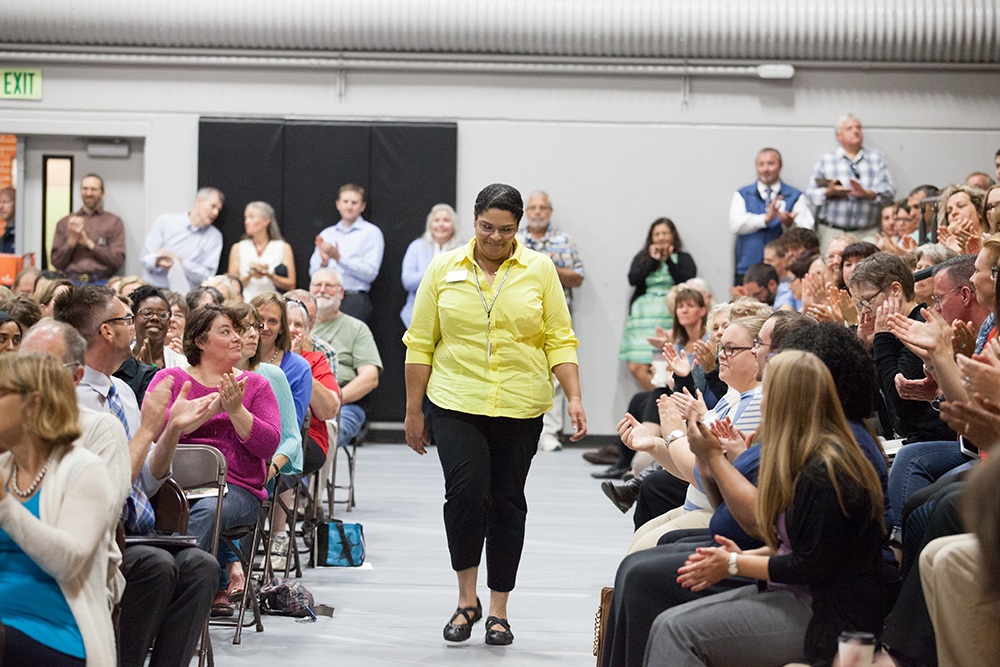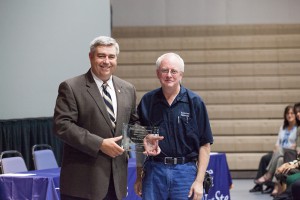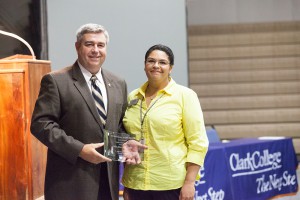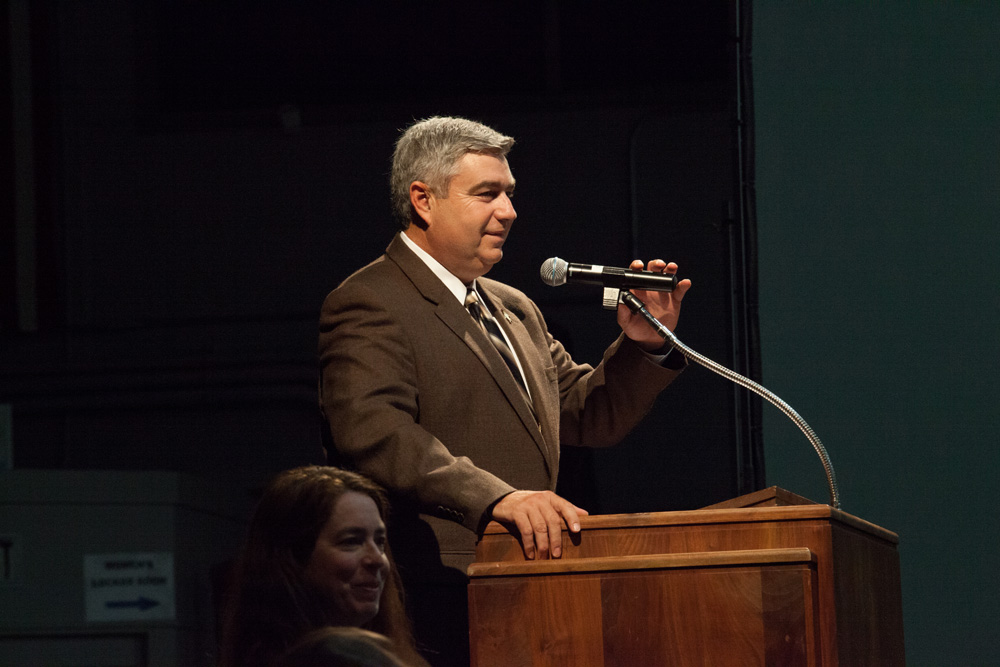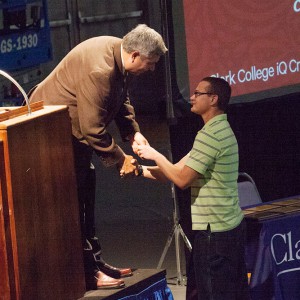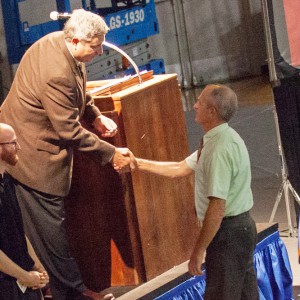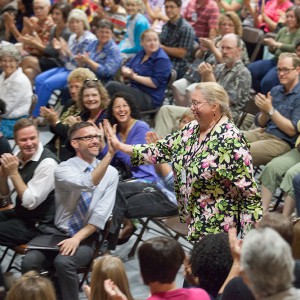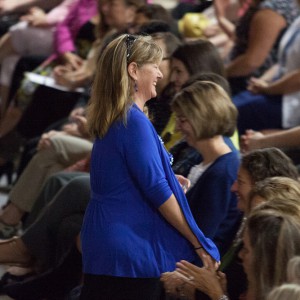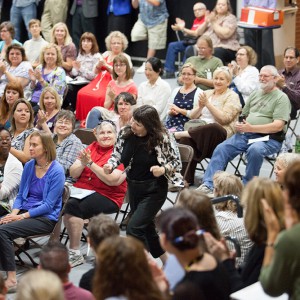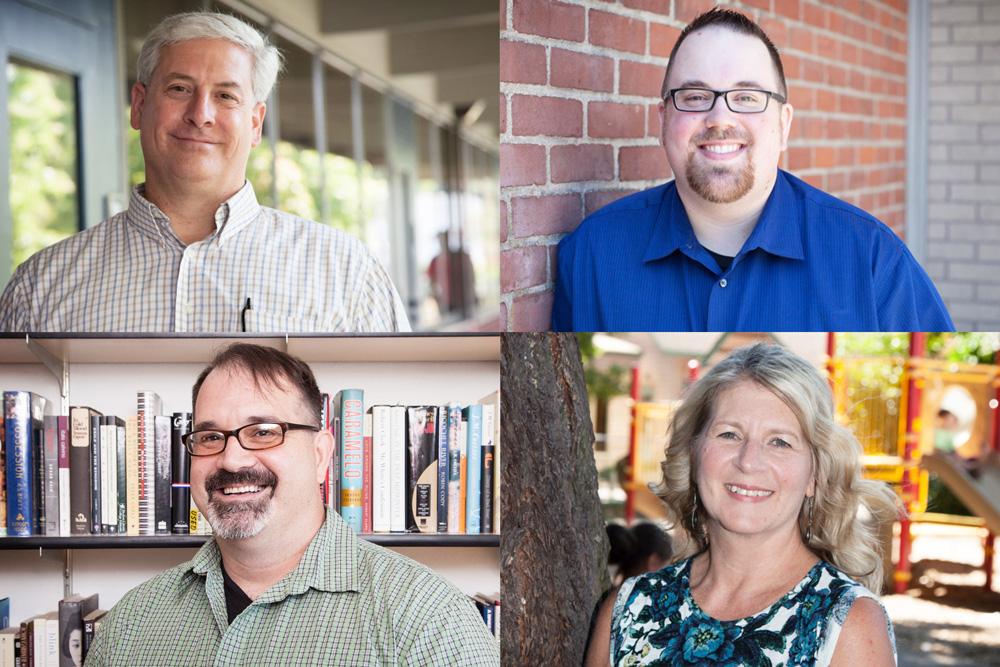Exceptional Faculty Award spotlight: The naturalist
Steven Clark’s office is full of animals. There’s the “Cats Against the Bomb” calendar; the poster of the grizzly bear; the woodblock print of a turtle; the vintage Audubon Society birdwatching chart; photos of bees, rodents, spiders, his dogs. The effect is something like walking into a natural history museum that’s been shoved into a filing cabinet.
“This room is reflective of my interests,” says Clark, glancing over at an illustration of wildflowers above his desk. And, indeed, a conversation with Clark is likely to take you through the intricacies of parasitic wasps, the difficulties involved in attaching radio monitors to pond turtles, and a startlingly accurate imitation of a pika—a small, rabbit-like creature whose populations in the Columbia Gorge Clark has been helping to monitor for years.
It’s hard not to look around this room and assume that Clark was destined to be a biology professor. But Clark, who received his Master of Special Education for the Hearing Impaired from Lewis & Clark College in 1986, began his career teaching almost everything but biology at the Washington School for the Deaf.
“I was attracted to the idea of teaching an underserved population,” he says. Eventually, however, Clark found himself drawn to the sciences, and in 2000 he left the School for the Deaf to pursue a master’s degree in Environmental Sciences and Resources at Portland State University. For four years, he worked as a field biologist for the Washington Department of Fish and Wildlife while also teaching mathematics and biology at Clark as an adjunct instructor.
For Clark, teaching at a community college still fulfills that urge to help underserved populations. “There are great teachers at all colleges, I know that, but I think the mission of the community college—to teach the rank and file of our community—I like that,” he says. “My mother never got to go to college. But I used to think that if my mom had gone to college, she would have gone to a community college.”
Clark, who received tenure in 2014, currently teaches the biology sequence for life sciences majors, a three-quarter series that has earned a reputation as a daunting academic challenge.
“It’s funny, because I think of myself as a warm person, but I know my class is often perceived as … rigorous,” Clark says, smiling and pausing as he searches for the right word. “I think some students get nervous at first when I explain the work load. But the reason I talk about it from the very beginning is that I want them to understand what they’re getting into. I invite students from the past year to talk about what worked in getting them to be successful. I’ll tell students to show me their notes so I can see where they’re missing something. And you know, I think by the middle of winter quarter, their [study] habits have gotten better and they’re starting to have fun.”
Clark’s theory is backed up by the many students who nominated him for a 2014-2015 Exceptional Faculty Award. “Biology may very well be the study of life, but without an enthusiastic instructor it can seem completely lifeless,” reads one nomination. “Steven Clark has somehow managed to maintain a strict and efficient authority over his classroom, while also making it incredibly fun and intriguing. I can honestly say that I have never seen those two concepts, authority and fun, incorporated into a class so well together. … He truly cares for his students, that is abundantly apparent.”
For Clark, his classes’ rigor is one of the ways he shows that he cares. “I like my students to know that they did all their hard stuff at community college, where the focus is on teaching and the tuition is lower and there’s more room to recover from mistakes,” he says. “The best thing for me is when former students email me and say, ‘I’m at Washington State University right now, and me and the other Clark students are in the top tier.’”
Learn about other recipients of the 2014-2015 Exceptional Faculty Awards.
Photos: Clark College/Jenny Shadley
